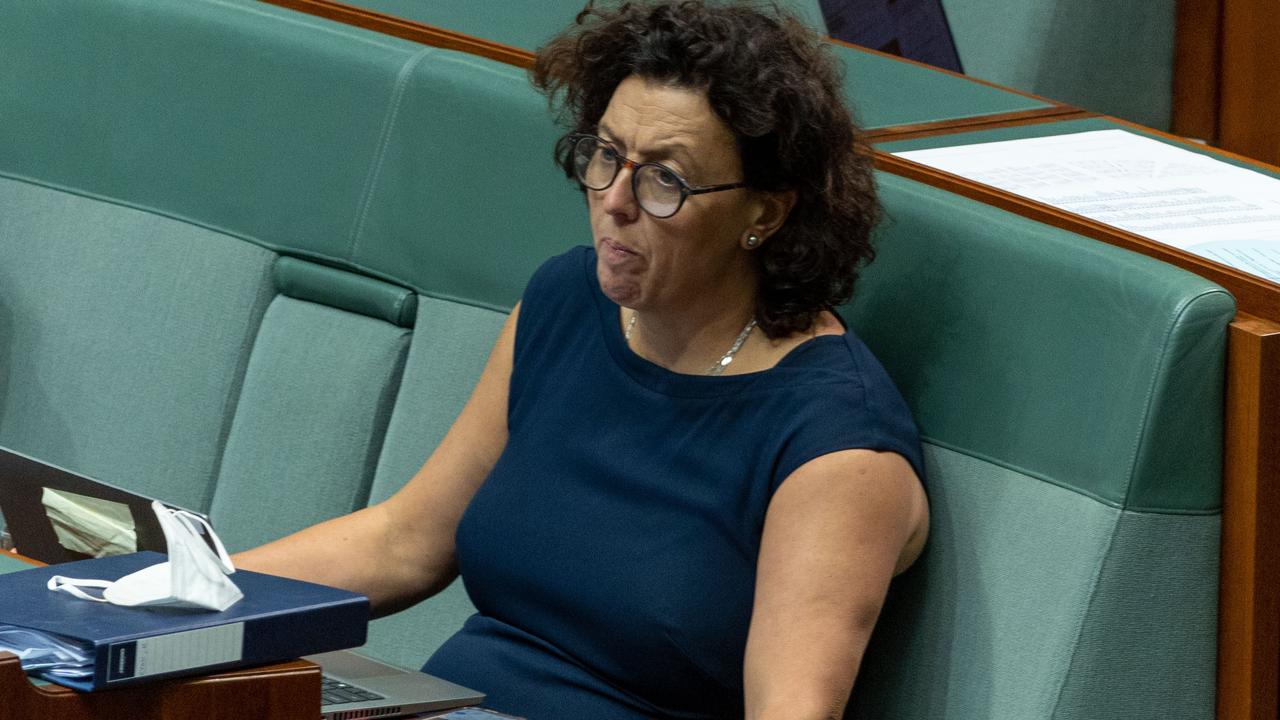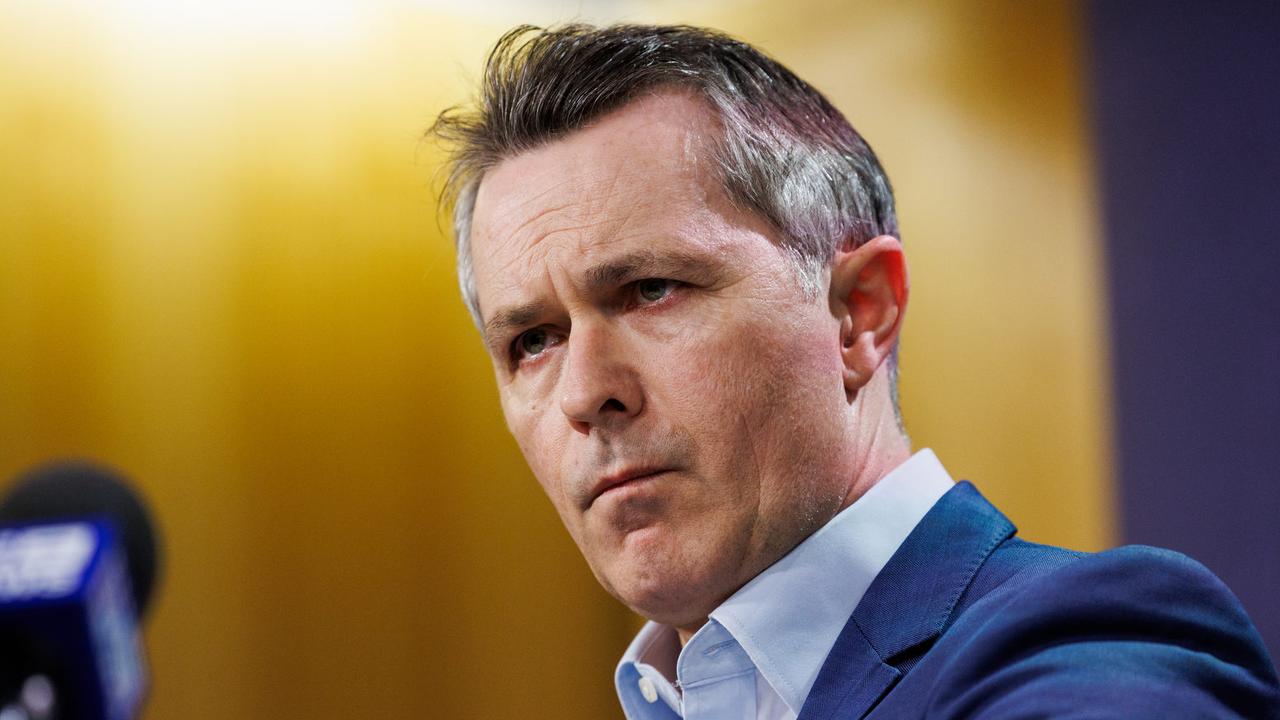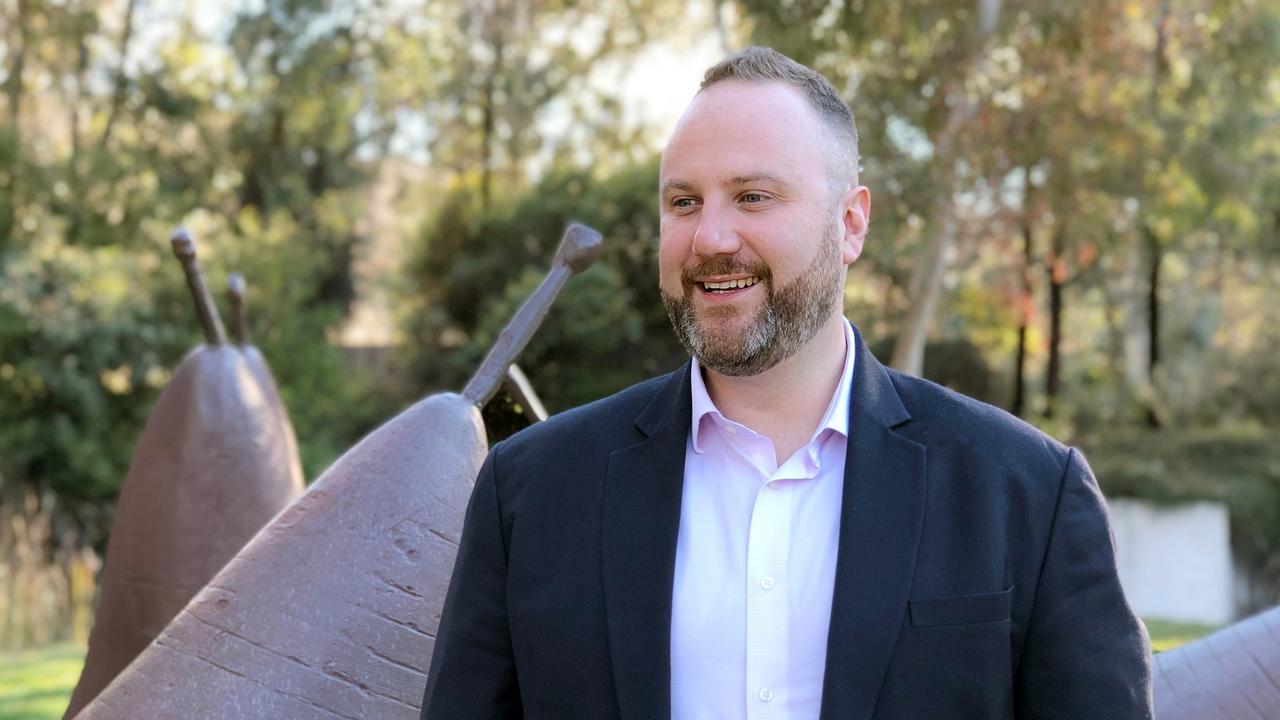Warning HECS debt relief will only be temporary
While the changes to HECS debt have been celebrated, there are warnings that it will only provide short term relief with bigger problems looming.
Clare Megahey is one university graduate who has racked up a HECS-HELP of more than $50,000.
When her university debt was slugged with a 7.1 per cent increase last year as part of indexation, it shot up by $3500 to almost $53,600.
That year, she only paid $2400 off; meaning her debt was growing despite her trying to pay it off.
“It was definitely going up faster than I would have been able to pay it off, which was scary,” Ms Megahey, who completed a five year degree in international relations and media from the University of NSW in 2021, told news.com.au.
“It was definitely disheartening not seeing it paid off as I worked a full-time job.
“I did think it was alarming as I was obviously paying off the minimum amount, so in theory that would be enough to have the debt go down gradually and not gradually increase. It seemed like a broken way of doing it.”
For university students and graduates, indexation jumps of 7.1 per cent last year and 3.9 per cent in 2022 saw debts rise by 15.7 per cent in just three years.
It prompted independent MP Monique Ryan to start an online petition calling on the government to make HECS repayments fairer, which attracted 288,000 signatures, as the politician argued students were going backwards as debts rose despite working to pay them off.

While HECS debt does not accrue interest, it is indexed for inflation every year.
This means, from June 1, anyone who hasn’t paid off their loan traditionally faces a debt rise in line with inflation, which last year was a whopping 7.1 per cent; the biggest increase in 30 years.
With backlash building, the government recently announced the indexation rate would instead be capped to the lower of either the Consumer Price Index (CPI) or the Wage Price Index (WPI) with effect from June 1, 2023.
Ms Megahey said she was relieved to hear of Prime Minister Anthony Albanese’s plan to wipe $3 billion in HECS-HELP student debt for three million Aussies.

Huge debts
The 26-year-old still sees her degrees as “worthwhile” to allow her to pursue a profession she is passionate about but added it was “disappointing” to see arts degrees become more expensive during her time at university.
In 2020, the Morrison government’s Job-Ready Graduates Package made changes to the way degrees were billed with humanities degrees put into the same bracket as law, pushing up fees by 113 per cent.
The move was made to push students into areas of “national priority” and it saw fees divided into four areas with the likes of nursing and agriculture starting at $3950 a year, law hitting $14,500 a year, while accounting and most arts degrees cost more than $15,000.
“It’s discouraging when doing a degree and everyone is telling you it’s a waste of money,” added Ms Megahey.

The communications professional, who has been working full-time for four years, believes she will be able to pay off her $51,000 HECS-HELP debt completely.
But, Australian National University higher education policy expert Andrew Norton said many graduates who have completed arts degrees or have amassed huge HECS-HELP debts will struggle to pay it all in their lifetime.
He noted the core issue with HECS-HELP isn’t indexation but that some people have “excessive debts” and it’s not something that would be fixed easily in the short term.
“One thing the government wants to do but may not do in the budget is address the very high student contribution with humanities, which is $16,000 for the whole year for most humanity subjects, and the debts are way too high relative to earnings of art graduates,” he said.
“There’s also the issue of people doing multiple degrees, and the other problem is particularly doing a postgraduate course immediately or very soon after graduating. These full fee debts could be $50,000 to $100,000 before they have had a full time job and if you start from that point, it’s very difficult to get that under control in any reasonable time frame.”
Prof Norton said professions like psychology and teaching may need to renegotiate the need for expensive postgraduate studies.

A deeper problem
Another flaw in the system is when payments are made, Professor Norton added.
While payments towards your HECS debt are taken out of your pay in real time, that money is not coming off your debt at the same rate.
Instead, the Australian Taxation Office (ATO) holds these funds as a credit until you file your tax return on or after July 1.
But, because indexation occurs before this on June 1, your past contributions are actually applying to the higher indexed rate, despite coming out of your pay much earlier.
Prof Norton suggested the government may make moves in the budget to have the compulsory repayments deducted from debt in a more timely manner.
Meanwhile, he said the change to indexation was a “good response to the pain” caused last year but warned the problem was simply being kicked down the road.
“It is solving the problem we had in (the) last two to three years without thinking of the problems we have in the future,” he noted.
“Both CPI and the Wage Price Index are going up together at fairly high rates. While we have got a lower rate with the Wage Price Index, it’s still a higher level than at historical levels.
“Since the start of this century, there have only been four years where the Wage Price Index is lower than CPI.”

Buying a house
A change in lending criteria recently has seen HECS-HELP now counted the same as a credit card debt when it comes to obtaining a mortgage – slashing people’s borrowing power and causing difficulties in getting a home loan.
It's had a crippling impact on young Australians, with a major review into universities earlier this year revealing enormous debts were forcing some to choose between buying a home and an education.
The Universities Accord report urged the government to ensure banks recognised that HECS-HELP – which is paid back once graduates start earning $51,550 a year – was unlike other types of loans because it was not possible to default.
“Unless someone earns sufficient income, there is no obligation to repay and as such they should be treated differently,” the report said.
Prof Norton said this was a relatively new issue introduced by financial services regulator the Australian Prudential Regulation Authority, which required banks to include the HECS-HELP debt.
“What that has done is that the banks are less willing to lend substantial sums to HELP debtors whereas before they took into account annual repayments based on income, rather than the size of debt,” he said.
“It’s a mistake. The government has written to banks to try and get this changed and it probably has a good chance but it might take a year or two. It’s resting on a misunderstanding of the nature of HELP debt and I’d be surprised if the total balance of HELP is a reliable predictor of default.”

Lizzie Vines, who is in her second year of a Bachelor’s in Advertising, Marketing, and Public Relations at Edith Cowan University, is one of the students who signed Dr Ryan’s petition and was happily surprised when it worked.
However, the online marketing specialist said despite the government lowering the potential indexation rate, the percentages were still “ridiculous”.
“Personally, I have not paid off my HECS debt because I am waiting to have enough in savings so I can pay it off in one fell swoop,” she said.
She currently has a HECS debt of $32,000.
The 20-year-old from Western Australia believes students don’t understand the HECS-HELP system well enough.
“Although there is technically no interest, there is indexation, which is much worse in our financial crisis,” she said,
“When told about university in high school, they did discuss the HECS debt, but they made it out to be something so small and insignificant, even going as far as to say that it wouldn’t harm our chances of getting a loan for your first home. Those people could not be further from the truth.
“Looking back now, I am very glad I have not spent any money on paying off my debt because the government is still sorting things out. On the off chance some of my HECS debt could be wiped, I’m willing to take it.”

For Ms Megahey, a home loan wasn’t a concern because she doesn’t aspire to buy a house given the huge property prices in Sydney.
However, on some property forums young people have spoken about their HECS-HELP debt knocking off hundreds of thousands from their borrowing power.
Some have even grappled with whether to pay off their HECS-HELP debt with money saved for a house deposit.
Education Minister Jason Clare will reveal the first stage of his response to the University Accord’s recommendations in next week’s budget.

What’s changing?
The Higher Education Contribution Scheme (HECS) was absorbed into the Higher Education Loan Program (HELP) in 2005 and is now officially called HECS-HELP, but the scheme is still commonly referred to as HECS.
The Prime Minister announced last week the cost-of-living budget measure to change the way HECS-HELP is indexed for cash-strapped millennials and millions of other Australians, in a bid to address the mounting weight of student debt and rising rental costs.
The plan does not wipe out HECS debts entirely, but rather backdates a change to how interest on student loans is calculated to last year, meaning many people will get thousands of dollars refunded.
An individual with an average HECS debt of $26,500 will see around $1200 wiped from their outstanding loans this year, pending the passage of legislation.
But students with huge debts of $100,000 who have studied expensive degrees including medicine, law or even studied multiple degrees could have $5000 wiped.

Universities Australia CEO Luke Sheehy said students had been doing it “tough” not only in terms of their HECS-HELP debt, but with the cost of living spiral pushing up their costs for food, rents and fuel.
He welcomed the indexation changes and described the HECS-HELP system as “genius” by allowing any students regardless of their earnings or family background to attend university with no upfront cost for fees.
More Coverage
Mr Sheehy said the average debt for a graduate who had done a bachelor’s degree was $26,000.
“With a bachelor degree, that gives an almost $1 million benefit for earning capacity over the course of someone’s life, so it’s a good investment,” he added.
– with Frank Chung





